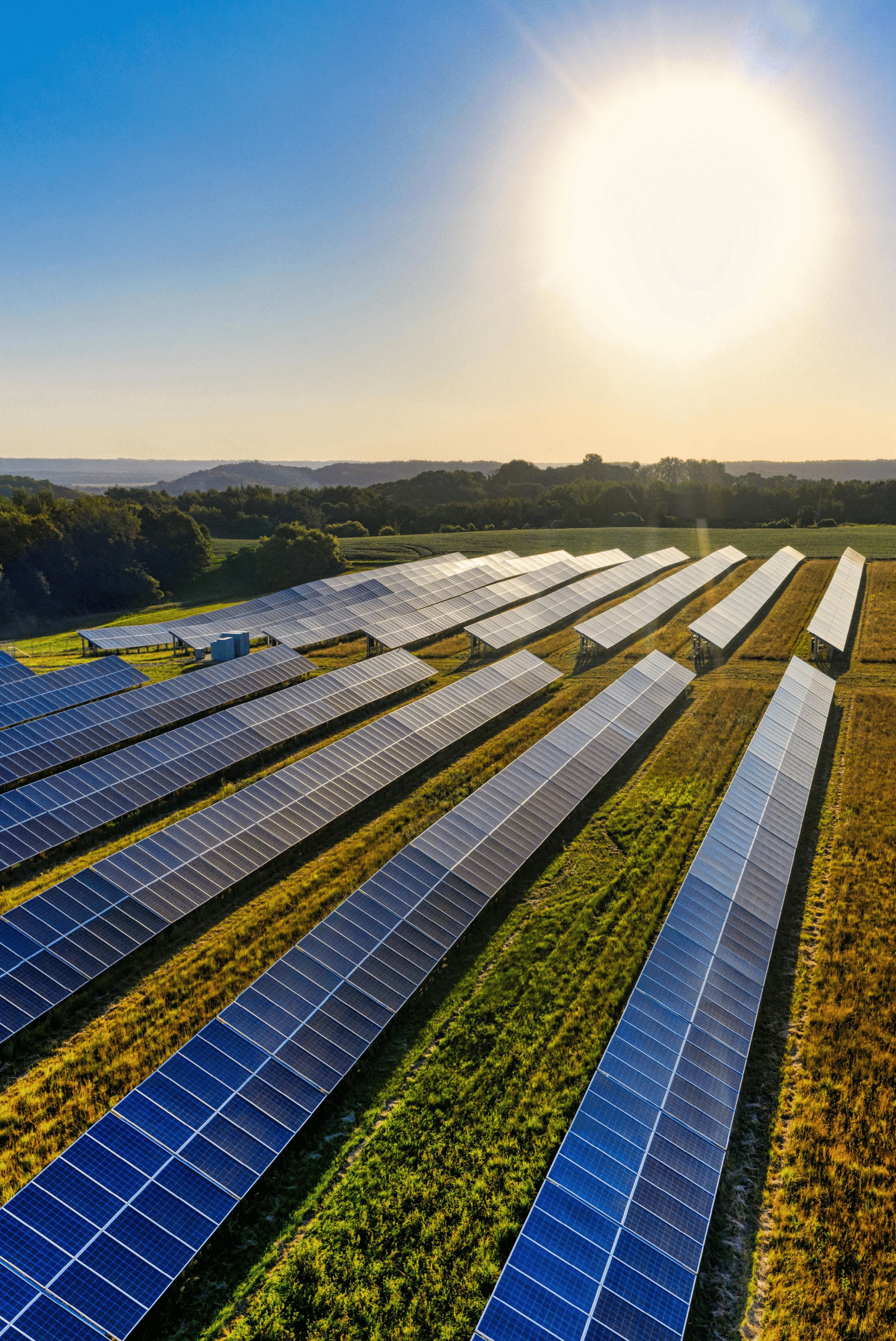A Guide To Choose The Right Solar Cleaning Technology

Automated solar cleaning technology has evolved to meet these challenges but not all systems are built alike. In this guide, we outline a decision framework to help stakeholders choose between dry and hybrid cleaning solutions. We also introduce how advanced systems like SolaRob Aero and AquaX are helping organizations across India achieve measurable gains in efficiency and cost savings.
Yet, one silent but persistent issue continues to erode long-term returns; solar panel soiling caused by dust, pollution, and inefficient cleaning practices.
Manual cleaning is no longer viable for large-scale or urban installations. Here’s why:
- Dust and particulate matter can reduce panel output by up to 35%.
- Labor-intensive cleaning is inconsistent and expensive.
- Water use in cleaning is unsustainable, especially in drought-prone states.
Automated, AI-enabled solar panel cleaning robots address these challenges at scale reducing operational costs and maximizing energy output.

Before investing in a robotic solution, consider these three core parameters:
1. Local Air Quality (AQI)
Sites in Delhi NCR, Mumbai, and other industrial hubs frequently record AQI levels exceeding 150. In such environments, pollutants settle rapidly and form sticky grime on solar panels necessitating both dry and wet cleaning capabilities.
Recommended: Hybrid cleaning robots with real-time AQI sensors.
2. Water Availability
Water scarcity is a pressing concern in states like Rajasthan, Gujarat, and Telangana. Regulatory norms and groundwater depletion make wet cleaning unviable in many regions.
Recommended: Zero-water dry cleaning systems.
3. Project Location and Installation Type
Each site demands tailored automation based on:
- Rooftop systems (malls, plants): May require flexible, lightweight solutions
- Ground-mount utility farms: Need rugged, scalable systems
- Irregular terrains or tilt variations: Call for rail-free, AI-adaptive robots
Dry Cleaning Solutions
Best suited for: Arid zones, remote farms, large-scale solar parks
Featured Product: SolaRob Aero, India’s leading AI-powered, zero-water dry cleaning robot
Key Features:
- Electrostatic microfiber brushes for waterless dust removal
- AI Smart Scheduling adjusts cleaning cycles to local dust load
- Self-powered, solar-charged design (no grid dependency)
- Rail-free automation glides seamlessly across panels
- Engineered to withstand high temperatures and sandstorms
Performance Benefits:
- Up to 35% increase in solar panel efficiency
- 70% reduction in annual O&M costs
- Payback period: 8-12 months
- 24/7 remote monitoring with IoT diagnostics
Client Testimonial:
“We’ve seen a remarkable improvement in our solar plant efficiency since deploying SolaRob Aero. Water is scarce here, and the zero-water cleaning solution has been a game-changer. Fully automated, minimal supervision, and reduced our O&M costs drastically.”
– Ankit Mehra, Operations Head
Learn More → SolaRob Aero
Best suited for: High-AQI city zones, institutional rooftops, government and industrial projects
Featured Product: SolaRob AquaX, India’s most advanced hybrid cleaning robot
Key Features:
- Dual-mode operation with automated switching between dry and wet cleaning
- IoT-enabled AQI sensors determine optimal cleaning method
- Saves up to 80% water versus traditional systems
- Self-refilling high-pressure jets remove urban grime and sticky pollutants
- Remote monitoring with minimal manual intervention
Performance Benefits:
- Sustained output in heavily polluted zones (AQI >200)
- Ensures year-round solar panel efficiency
- Ideal for sites with compliance-driven O&M requirements
Explore More → SolaRob AquaX
Every SolaRob system is designed and manufactured in India, built to meet the diverse needs of Indian solar assets:
- Scalable across 10 kW to 500 MW installations
- Rail-free deployment (no structural overhaul required)
- Pan-India AMC and EPC support
- Smart diagnostics via IoT dashboards
- Minimal installation time and infrastructure
| Site Factor | Recommended System | SolaRob Product |
| Water Scarcity | Dry | SolaRob Aero |
| High AQI/Urban Pollution | Hybrid | SolaRob AquaX |
| Large Utility Farms | Dry | SolaRob Aero |
| Industrial Rooftops | Hybrid | SolaRob AquaX |
| Government Institutions | Hybrid | SolaRob AquaX |
Your choice of solar cleaning robot impacts more than panel cleanliness. It determines the long-term viability of your solar asset’s return on investment. With SolaRob, you get intelligent automation tailored to Indian conditions designed not just to clean, but to perform.
Find the Right Cleaning Tech for Your Solar Project – Start Now!

